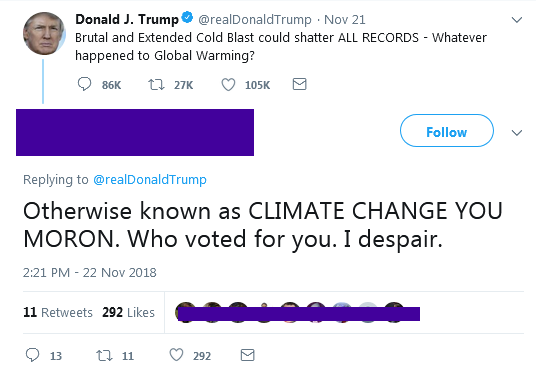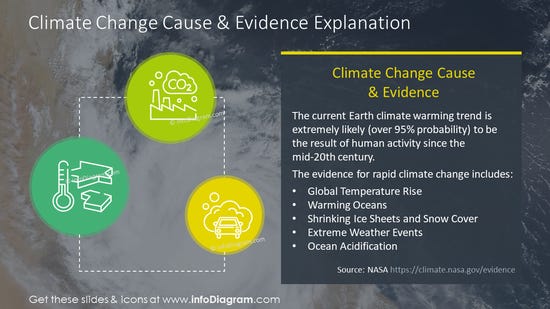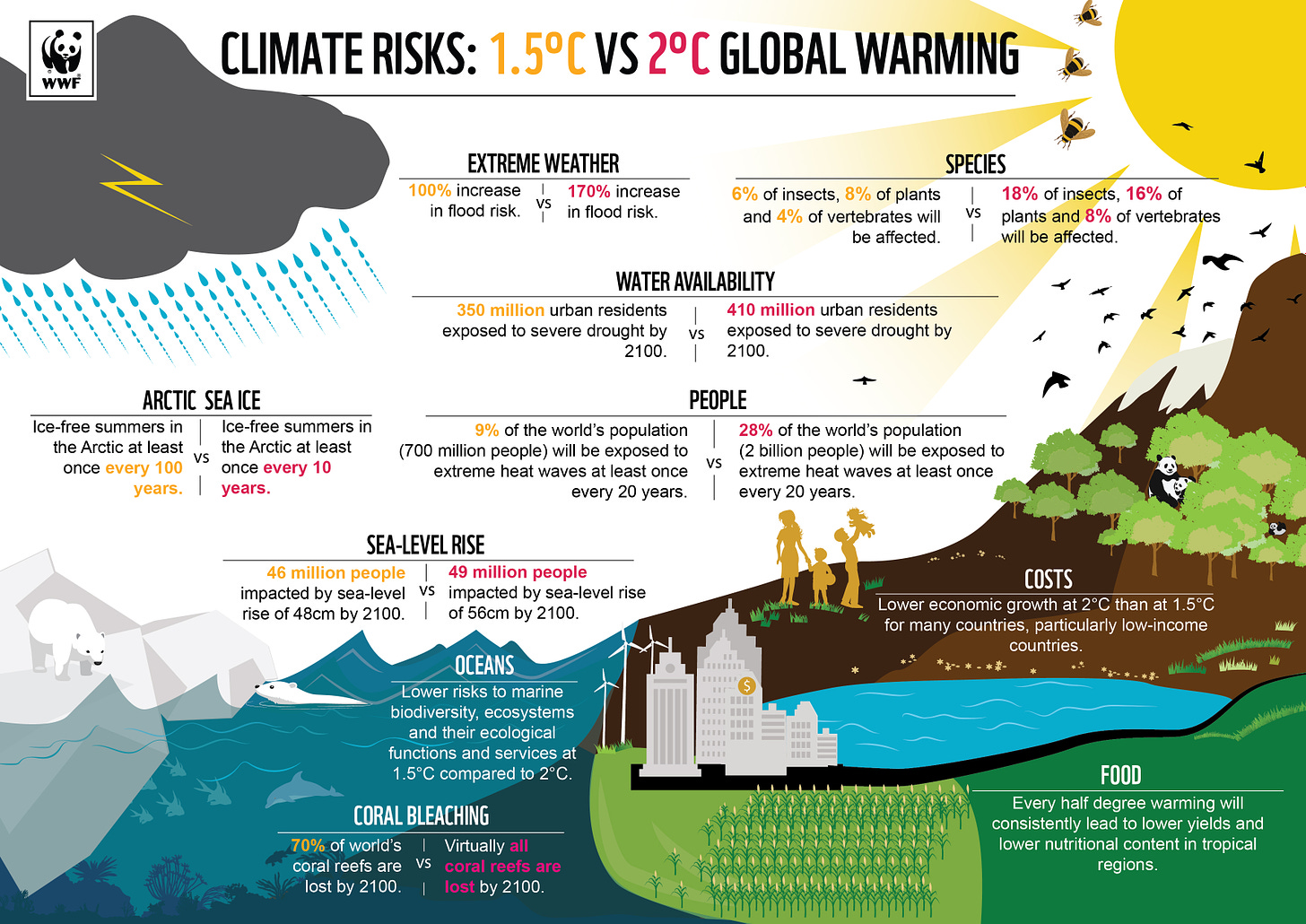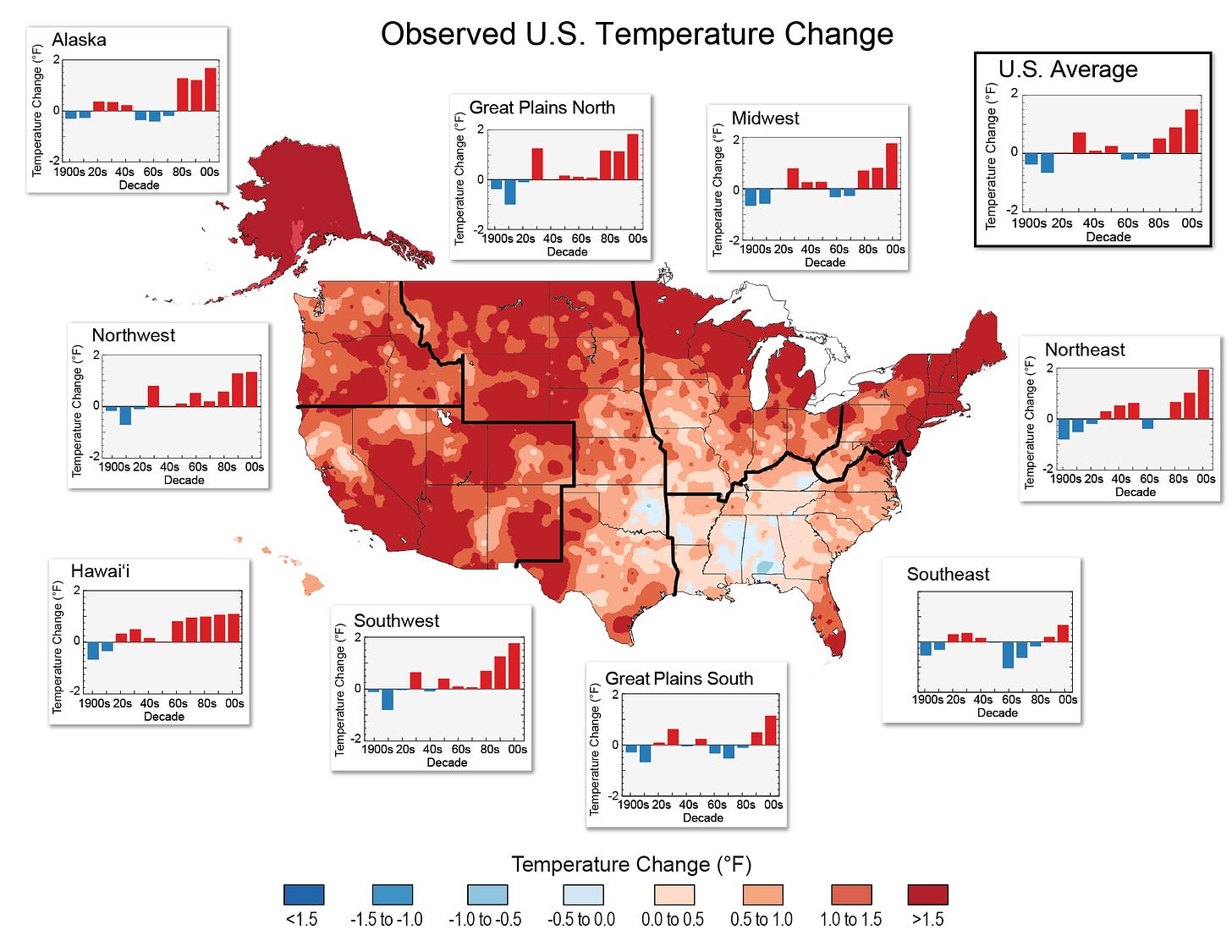"We Destroyed Ourselves. But We Destroyed The World First."
What if we knew global climate change was real and STILL did nothing about it??
My world, my Earth, is a ruin. A planet spoiled by the human species. We multiplied and fought and gobbled until there was nothing left, and then we died. We controlled neither appetite nor violence; we did not adapt. We destroyed ourselves. But we destroyed the world first.
- Ursula K. Le Guin, The Dispossessed (1974)
Break out the champagne; let’s get on with the shit show.
- Amanda Shires, “Break out the Champagne”
There’s little doubt but that 2021 has been the year that has demonstrated the undeniable reality of global climate change. Not that it’s has been the first year with noticeable impacts; far from it. But 2021 HAS been the year when many have realized it’s no longer possible to deny that things are changing…and not for the better.
I spent last week in Minnesota visiting family. In talking with them, I learned that the harsh winters that characterized my childhood have mellowed substantially. Lakes that by mid-November were solidly frozen over during my childhood are now sometimes not frozen until January or early to mid-February. Snowfall and snow accumulation aren’t what they used to be, either.
This summer here in Oregon has been, in a word, awful- dry and scorching hot. Of course, dry summers aren’t unusual in the Willamette Valley. The period between the beginning of June and the end of August typically features little, if any, rainfall. This may come as a shock to those who think it rains all the time here, but summers here often mean 80-90 consecutive days with no measurable rainfall.
In addition to the bone-dry conditions, which brought on the usual burn bans, Portland experienced record-high Phoenix-like temperatures. Before June, the record high temperature in Portland had been 107. One fine day it was 115 and then 117 the very next day. Portland isn't designed for the sorts of temperatures you find in the Valley of the Sun. Many homes don’t have air conditioning because there are relatively few days when it might be considered necessary in a normal summer. We didn’t have A/C installed in our home until three years ago…and we’ve been grateful for it this summer.
Dozens died from the heat in the Portland area because much of the Rose City wasn’t built with high temperatures in mind. For example, many low-income high-rise buildings don't have central air conditioning, which, in 117-degree temperatures, can turn buildings without a/c into death traps, especially for senior citizens. They trap heat and, with no air movement, turn into oven-like environments. It can be a deadly situation if you don’t move well, don’t have any fans, and there’s no one to check on you.
Hurricanes and tropical storms in the Gulf of Mexico are becoming more powerful and more frequent. Unfortunately, most coastal communities are ill-equipped to deal with 10-, 12-, or 15-foot storm surges. I lived in a small town on the Texas Gulf Coast for 10 years, and the fear of hurricanes or tropical storms was never far from anyone's mind. The year after I left to return to Portland, much of the residential waterfront was severely damaged by Hurricane Ike’s storm surge.
That’s the gamble one accepts when choosing to live along the Gulf Coast, but it doesn’t make the cleanup and restoration of one’s home any easier or more pleasant. And global climate change promises only to increase the frequency and force of those storms.
As temperatures continue to rise worldwide and the ice caps melt, coastal cities will face growing threats from flooding due to rising sea levels. Some cities will build sea walls, but how high can you a wall? And how many miles long can you safely make it? If you’re channeling rise seawater elsewhere, someone somewhere will suffer the consequences. Whoever lives beyond its end will be swamped by the water it diverts.
What will happen when coastal cities are no longer habitable? Many of the world's great population centers will be facing inundation by floodwaters pushing by melting sea ice. What happens then? Where will people go? And who will pay? The economic impacts will extend far beyond forcing people from their homes. Businesses will be forced to re-locate, infrastructure will need to be rebuilt, and tax bases will need to be somehow restored. But, as populations move inland, how will local governments secure the financial resources to do those things?
And yet, despite these looming catastrophes, there’s little indication that government at any level fully grasps the potential impact of global climate change. It’s is no longer a matter of debate; global climate change here, and it’s real. In addition, most of us have probably seen something that anecdotally demonstrates the impact on a local level. Put those things together, and you have an idea of how our world is changing for the worse.
Whether Mankind has escalated global climate change past the point of no return is difficult to say. I’m not a climate scientist, just a concerned layperson wondering what sort of world my nieces and nephews will be inheriting. I can't help but feel sorry for them. We've been poor stewards of the only Earth we have. Given the accelerating pace of impacts created by the changing climate, looking 20, 40, or 60 years into the future doesn’t inspire confidence.
In the interim, we can all drive electric cars, recycle, and reduce waste as much as possible, but the real culprit is heavy industry…and not just here in the US. China, India, Russia, and South Korea are also huge problem areas for greenhouse gas emissions. So it doesn’t matter what we do here at home if those countries don’t do their part.
The Paris Accords are an ideal, but not likely one the world will meet. Australia, for instance, shows no promise of meeting its commitment as laid out in the Accords, and other countries are similarly lagging.
I want to think that there’s ample reason for me to be optimistic, that my skepticism will be proven wrong, and Mankind will get its $#!% together. That said, what I’ve seen thus far doesn’t lead me to believe there’s any sense of urgency to meet the Paris Accord’s targets and reduce the impact of global climate change. I’ll be a distant memory by the time the truly ugly consequences of global climate change come calling. Nonetheless, I’d like to think the world’s leaders will recognize the fierce urgency of acting now to avoid that worst-case scenario.
There may yet be hope for our future. I only wish I could be openly optimistic about that hope.
Thank you for taking the time to read this. If you enjoyed it, why not pass it along to a friend or two who might similarly enjoy it? If you REALLY enjoyed it, please consider subscribing or donating via Venmo (@Jack-Cluth). Magnus could really use some new dog toys.








